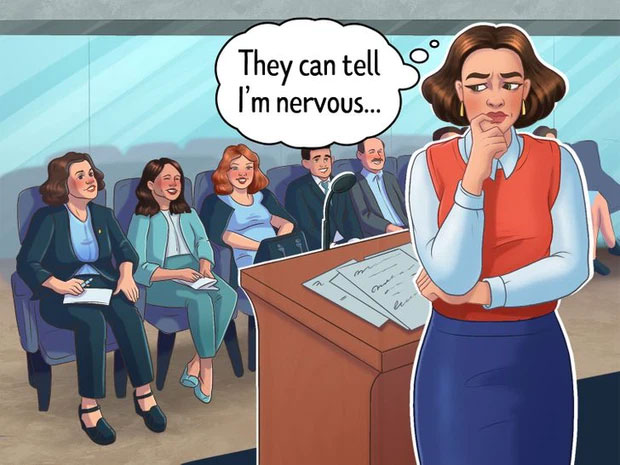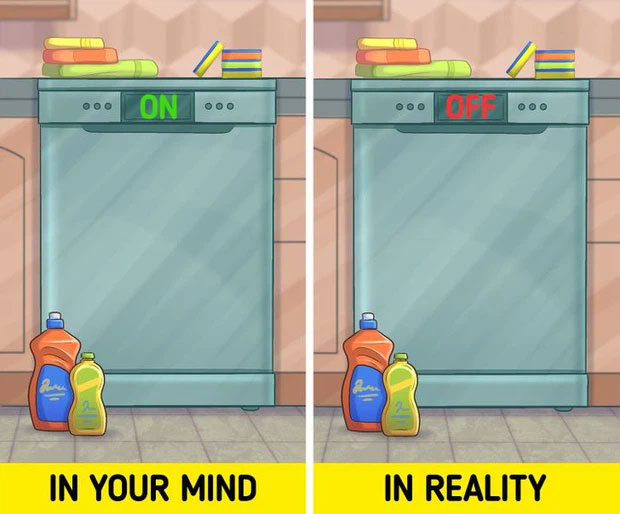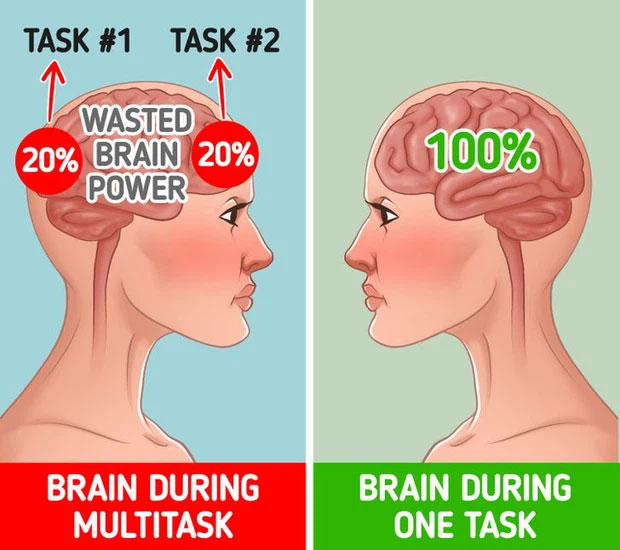There is a common misconception that humans only use 10% of their brains. However, in reality, all parts of the brain are always active—even during sleep. Because they are so active, they can sometimes create strange effects in our psychology, influencing us subconsciously.
Top 7 Strange Psychological Effects in Humans
Try reading the list of strange effects below and see if any seem familiar.
1. Barnum Effect

Will I get fired today?
Also known as the Forer Effect, this psychological phenomenon makes us believe that a vague message applies specifically to us, even though anyone who reads it would feel the same way.
One of the most common examples of this phenomenon occurs when you go to a fortune teller or read your horoscope. They provide very general information, yet you always feel it applies to you, right?
2. Illusion of Transparency

They will know I am afraid of losing
Illusion of Transparency occurs whenever you experience a strong emotion; you tend to think that everyone can see it. This illusion contributes to increased anxiety when speaking in public, as we fear that others will know we are nervous or scared. In reality, though… probably no one is paying attention.
3. Freudian Slips

Have you ever intended to say something, but ended up saying something completely different? This phenomenon occurs quite frequently, not just in daily communication but also in writing.
This phenomenon is known as Freudian slips, named after psychologist Sigmund Freud. “Slip” in English means to trip, indicating that your tongue has also accidentally stumbled.
According to Freud, unconscious thoughts can unintentionally manifest in actual behavior, even if you did not intend to do so. For example, a child who has just started school may accidentally call their teacher “Dad” after spending most of their time with their father. Or mistakenly calling an ex by their name, for instance, is also due to this phenomenon.
4. Availability Heuristic

Don’t even think about me going back to that beach
This effect can be translated as “availability bias”. It is a psychological effect where the brain seeks to create the shortest path to analyze a topic by providing the quickest examples.
For example, if you read news about a series of car thefts in a particular area, you might immediately assume that there are many thieves in your area compared to the actual statistics. Similarly, if you read a few negative news stories about a vaccine, you might bias towards another vaccine instead of relying on actual data.
5. False Memory Effect

Our memory is not as reliable as you might think. It is fragile and can easily be distorted. This is because we do not simply recall an event from the past; what you remember also depends on when and how you stored that information.
This is why false memories occur—memories that seem real but are actually imagined by you.
For instance, you might think you didn’t wash the dishes before going to work, only to find out when you return home that you actually did. That is a type of false memory.
6. Ironic Process Theory

Don’t want to think but my brain says don’t forget.
Who among us doesn’t have memories we want to forget? But the more you try to push them out of your head, the more you think about them. This phenomenon is called “Ironic Process Theory,” which shows that the brain can indeed be a trickster.
7. Attention Residue Effect

The brain will waste a lot of capacity if we multitask
Many people might think they have trouble concentrating. However, in scientific terms, you might simply be experiencing the “attention residue” phenomenon.
This effect occurs when your attention gradually diminishes throughout the day due to continuously switching from one task to another without actually completing any of them. It makes it very difficult to focus entirely on a particular issue you need to address.
Overall, the solution to this is to focus all your energy on solving one task at a time to help your mind be more at ease for subsequent tasks.


















































